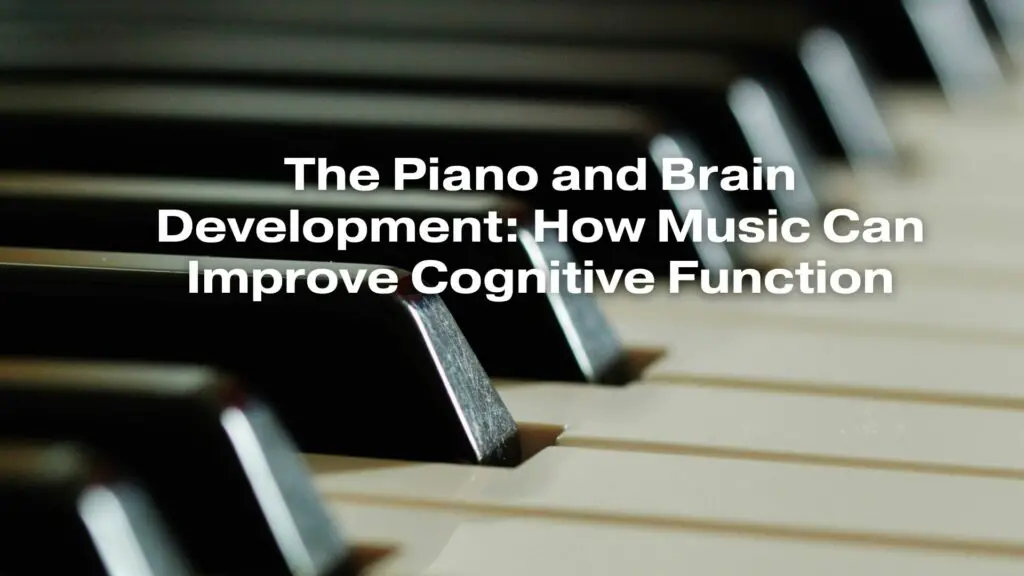The piano, with its intricate melodies and challenging compositions, can be a powerful catalyst for brain development and cognitive function. The act of playing, learning, and listening to piano music engages various cognitive processes that can significantly enhance brain development. In this article, we’ll explore how the piano and music can contribute to improved cognitive function.
1. Memory Enhancement:
- Learning to play the piano involves memorization of notes, rhythms, and compositions, which strengthens memory and recall abilities.
2. Fine Motor Skills:
- Playing the piano requires precise hand-eye coordination, finger dexterity, and fine motor skills, which contribute to improved manual dexterity and coordination.
3. Problem-Solving Skills:
- Music theory and piano practice involve complex problem-solving, enhancing analytical and critical thinking abilities.
4. Mathematical Aptitude:
- The rhythmic and mathematical aspects of music, including counting beats and understanding time signatures, can improve mathematical skills.
5. Multitasking:
- Piano players must simultaneously read sheet music, use both hands independently, and interpret musical notations, fostering multitasking abilities.
6. Auditory Discrimination:
- Learning music sharpens auditory discrimination skills, making it easier to distinguish between different sounds and phonemes.
7. Spatial Awareness:
- The piano keyboard, with its arrangement of keys, fosters spatial awareness and cognitive mapping.
8. Emotional Intelligence:
- Playing and interpreting piano music can promote emotional intelligence by enhancing the recognition and expression of emotions.
9. Creative Thinking:
- Piano players often engage in creative activities like composition and improvisation, stimulating innovative thinking.
10. Language Development: – Learning to read sheet music and understand musical terminology can improve language skills, vocabulary, and comprehension.
11. Focus and Concentration: – Playing the piano requires intense focus and attention to detail, honing concentration and attention span.
12. Cognitive Reserve: – Engaging in musical activities, such as piano playing, contributes to cognitive reserve, potentially delaying the onset of cognitive decline in later life.
13. Emotional Regulation: – Music, including piano compositions, can help with emotional regulation, reducing stress and anxiety, and enhancing overall mental well-being.
In conclusion, the piano is a multifaceted tool that can significantly impact brain development and cognitive function. Whether through memory enhancement, fine motor skill development, problem-solving abilities, or emotional intelligence, the cognitive benefits of playing, learning, and listening to piano music are extensive. The piano’s intricate melodies and challenging compositions provide a rich and diverse landscape for cognitive growth, making it an instrument that not only enriches the soul but also enhances the mind.


